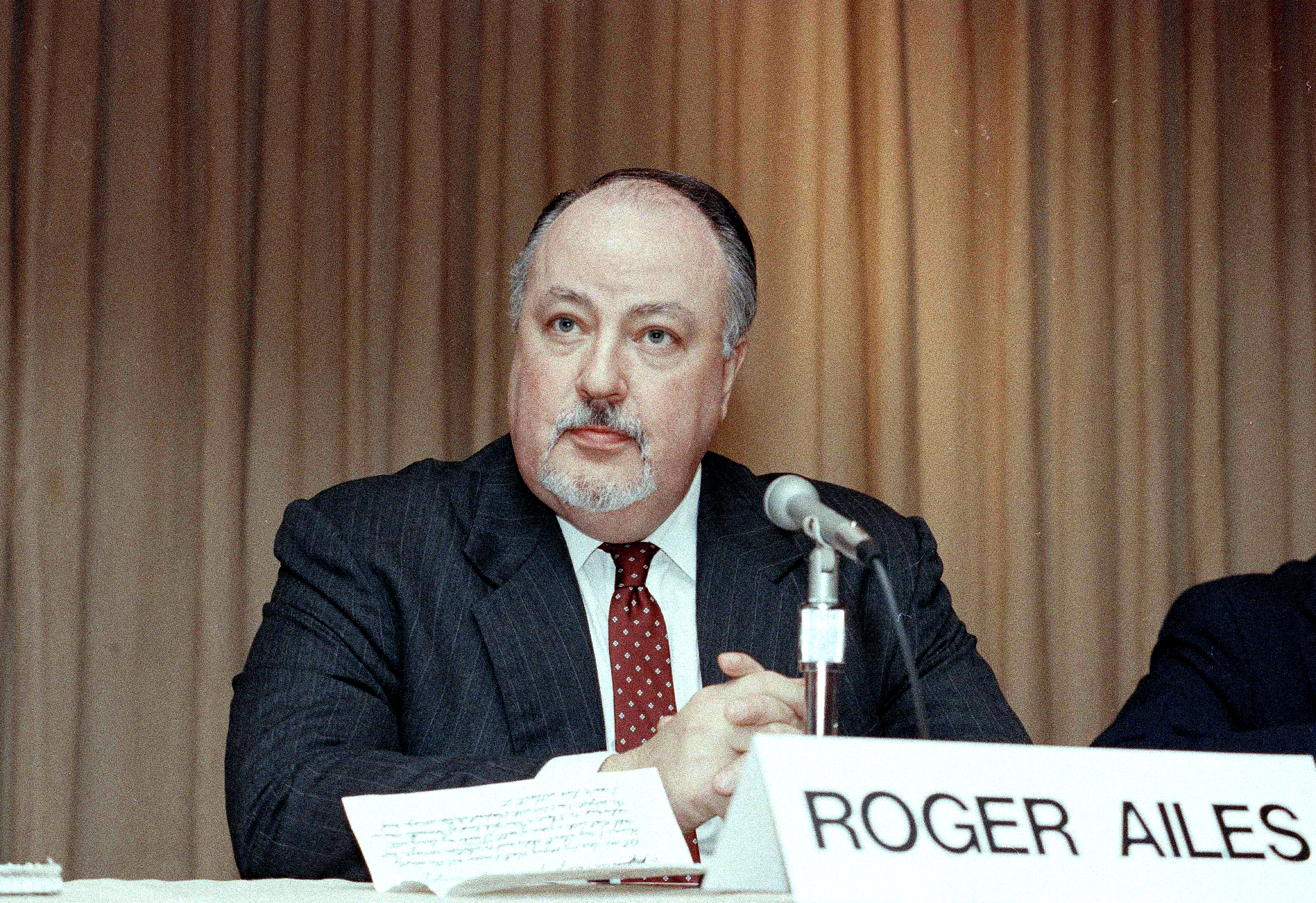Why Fox News was created
Richard Nixon and his aides wanted a TV network of their own


A free daily email with the biggest news stories of the day – and the best features from TheWeek.com
You are now subscribed
Your newsletter sign-up was successful
This is the editor's letter in the current issue of The Week magazine.
If Fox News had a DNA test, it would trace its origins to the Nixon administration. In 1970, political consultant Roger Ailes and other Nixon aides came up with a plan to create a new TV network that would circumvent existing media and provide "pro-administration" coverage to millions. "People are lazy," the aides explained in a memo. "With television you just sit — watch — listen. The thinking is done for you." Nixon embraced the idea, saying he and his supporters needed "our own news" from a network that would lead "a brutal, vicious attack on the opposition." Alas, his fantasy network did not come into being at that time, and the 37th president was soon engulfed in the Watergate scandal. At first, Republicans dismissed the scandal as a Washington Post "witch hunt." But then the White House tapes proved beyond doubt that Nixon had used the levers of government to pursue vendettas against his opponents and cover up his extensive skulduggery. Disgusted GOP leaders, including Sen. Howard Baker of the Senate Watergate committee, chose principles over party. Nixon was forced to resign.
We live in a far different country today, thanks to the vision originally outlined in that 1970 memo, which Ailes realized decades later with Rupert Murdoch's money. Fox News provides an alternative reality to the "fake news," providing daily talking points to Republican elected officials and policing them the way a sheepdog does its flock. Those who dare stand up to President Trump know they will be denounced as traitors on Fox, even if they're war veterans with a Purple Heart on their chests. In Foxworld, no evidence can prove that Trump tried to extort Ukraine into interfering in the 2020 U.S. presidential election — and if he did, so what? If the president beats the impeachment rap in the Republican Senate, as he's likely to do, he should send a thank-you card to Roger Ailes and Richard Nixon, wherever they may now be.
The Week
Escape your echo chamber. Get the facts behind the news, plus analysis from multiple perspectives.

Sign up for The Week's Free Newsletters
From our morning news briefing to a weekly Good News Newsletter, get the best of The Week delivered directly to your inbox.
From our morning news briefing to a weekly Good News Newsletter, get the best of The Week delivered directly to your inbox.
A free daily email with the biggest news stories of the day – and the best features from TheWeek.com
William Falk is editor-in-chief of The Week, and has held that role since the magazine's first issue in 2001. He has previously been a reporter, columnist, and editor at the Gannett Westchester Newspapers and at Newsday, where he was part of two reporting teams that won Pulitzer Prizes.
-
 What is the endgame in the DHS shutdown?
What is the endgame in the DHS shutdown?Today’s Big Question Democrats want to rein in ICE’s immigration crackdown
-
 ‘Poor time management isn’t just an inconvenience’
‘Poor time management isn’t just an inconvenience’Instant Opinion Opinion, comment and editorials of the day
-
 Bad Bunny’s Super Bowl: A win for unity
Bad Bunny’s Super Bowl: A win for unityFeature The global superstar's halftime show was a celebration for everyone to enjoy
-
 Epstein files topple law CEO, roil UK government
Epstein files topple law CEO, roil UK governmentSpeed Read Peter Mandelson, Britain’s former ambassador to the US, is caught up in the scandal
-
 Iran and US prepare to meet after skirmishes
Iran and US prepare to meet after skirmishesSpeed Read The incident comes amid heightened tensions in the Middle East
-
 Israel retrieves final hostage’s body from Gaza
Israel retrieves final hostage’s body from GazaSpeed Read The 24-year-old police officer was killed during the initial Hamas attack
-
 China’s Xi targets top general in growing purge
China’s Xi targets top general in growing purgeSpeed Read Zhang Youxia is being investigated over ‘grave violations’ of the law
-
 Panama and Canada are negotiating over a crucial copper mine
Panama and Canada are negotiating over a crucial copper mineIn the Spotlight Panama is set to make a final decision on the mine this summer
-
 Why Greenland’s natural resources are nearly impossible to mine
Why Greenland’s natural resources are nearly impossible to mineThe Explainer The country’s natural landscape makes the task extremely difficult
-
 Iran cuts internet as protests escalate
Iran cuts internet as protests escalateSpeed Reada Government buildings across the country have been set on fire
-
 US nabs ‘shadow’ tanker claimed by Russia
US nabs ‘shadow’ tanker claimed by RussiaSpeed Read The ship was one of two vessels seized by the US military
